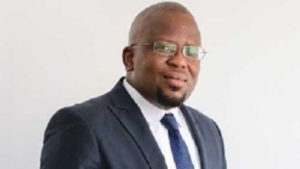January and February are traditionally sober months of financial renewal. One common resolution is finding a financial adviser. Most Internet searches on the subject produce nothing but spam and bad advice: “Talk to your friends,” “do your homework,” “click here.” None of this advice tells you how to save money, protect yourself, or what your homework is.
First, do not ask friends and family. Most advisers are conflicted and your family and friends probably have one of those. Firms and people selling products typically call themselves financial advisers and retirement planners; brokers and insurers attempt to create the expectation that they are providing fiduciary investment advice rather than selling investment funds that benefit them.
You need to know how to separate the real advisers from the salespeople. The wrong kind of adviser could cost you 25% of your account in unnecessarily high fees and expensive products.
Real advisers hold an alphabet soup of certifications. The ones to pay attention to are the 78,000 people who are CFPs (certified financial planners), the 55,000 ChFCs (chartered financial consultants) and 660,000 CPAs (certified public accountants, who mainly do taxes). CFP and ChFC designations both require multiple courses and comprehensive exams.
By narrowing your search to The National Association of Personal Financial Advisors (NAPFA), you can narrow your search to those who have Registered Investment Advisor credentials. These advisers promise to be conflict-free, fee-only (not fee-based) advisers and to abide by fiduciary duty. They have rigorous ethical standards and are legally bound to act in your best interests, not just offer suitable investments.
Choose a shortlist of advisers to interview. Make sure these advisers have not been disciplined by the Securities and Exchange Commission or other boards; usually a simple search on CFP.net will do the trick.
In your interviews, ask the following key questions — even though you have already checked they are fee-only, NAPFA- credentialed and never been disciplined:
How are you paid? Do you accept commissions? Do you accept referral fees? Will you put the fee plan in writing? The answers should be: flat fee-only, no, no, yes.
Will you sign a fiduciary oath? The answer should be yes.
There are other questions to ask — there's a good list here — but don’t bother if you don’t get the right answers for the first set of questions. It’s OK to shop around. Professionals recognize and admire scrutiny and welcome your questions.
You’ll get the most out of a professional’s financial advice only if you’ve already come up with a set of priorities and a budget. You are your own best first adviser. Don’t hand over power, knowledge or responsibility. Your relationship with a financial adviser should be a peer-to-peer one. You aren’t hiring a pseudo-spouse, parent or guardian. The more work you do, do the cheaper and better the advice will be.
The best self-coaching advice is in well-edited, well researched, well-used, non-conflicted materials designed by the National Endowment for Financial Education. Don’t be chary of reviewing the basics. I have my college students work through the Boy Scouts of American Personal Management Merit Badge material. One student took a free but high-commitment 20-hour course.
At the very least, do these three things: Take 25 minutes to make a budget and 30 minutes to list your wealth and debts. Then take a walk with your partner (or yourself, if you’re single) and talk about who are you and what you want. Are you one of the few who are so wealthy that your primary goal is estate planning to avoid taxes? Or do you worry about student debt, retirement savings and whether you can afford to buy a home? Make sure your adviser can help you with your interests: investing, estate planning, tax planning, retirement planning or higher education planning. (And remember, elite schools don’t pay off as much as advertised.)
After you have done all this, you might find that like most people, you really don’t need a full-fledged financial adviser. You could instead to spend $500-$1000 for a one-time session.
What most Americans need is more like a financial social worker — a trained professional who deals with ordinary money management issues, government programs and home buying, and who could recognize common fraudulent activity. After all, most of Americans’ wealth is in Social Security (worth about $360,000), retirement accounts and housing wealth. Most have straightforward debts too, like mortgages, student loans, or credit card debt.
Personal finance columns and books are about the closest thing we have to a low-cost trusted adviser helping you process your money needs and feelings about money. There are some nonprofit credit counseling agencies that offer personal finance advice, and some are low fee and free. See the advice from the not-for profit National Foundation for Credit Counseling.
It’s worth the effort of find advice you can trust. Managing your debt and wealth corresponds with financial well-being. Having a financial “coach” or a therapeutic conversation with an adviser can help reduce financial anxiety and increase your confidence. That’s psychologically beneficial and can help you make better decisions in the long run.
Business News of Sunday, 17 January 2021
Source: bloomberg.com













